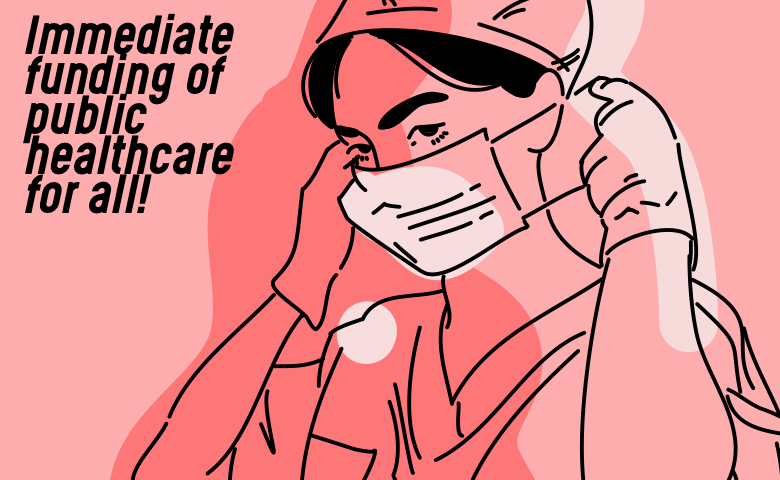By Helen Kennedy and Juanita Burnett
At a long-term care facility in rural Ontario, we chatted with a Personal Support Worker about the impact of the coronavirus on the residents and workers.
This home is chronically understaffed. With 65 residents, there are eight PSWs – less than one per 8 residents – but there are usually only five or six on weekends. The work is physically hard, and injuries are common. Finding workers in small towns can be difficult, especially if they’re only working part time. Pay varies – in this facility PSWs make a bit over $20 an hour, which is better than the average wage.
As the coronavirus pandemic took hold in Ontario, information and protocols changed almost daily. At first, workers were not allowed to wear masks, for fear of alarming the residents. As outbreaks in other LTC homes began, each worker was given a bag with two masks for each of their eight-hour shifts. The masks were not the recommended N95 masks.
Since the onset of the pandemic, the physical and mental stress of the PSWs’ job has compounded. Workers take their temperatures on arrival and departure and sign a screening questionnaire twice daily. Every morning and evening, residents have their temperature checked. PSWs clean constantly – they use bleach wipes to disinfect doors, handrails, lifts and so on. They enforce social distancing – residents are set two to a table, and meals are served in the dining room and in the lounge to spread people out.
At the beginning of the pandemic, the home admitted patients from hospitals that had confirmed COVID-19 cases. Residents and workers were all stressed at not knowing whether these new residents carried the virus. As outbreaks began to mount in other homes, public health issued a regulation that long-term care homes no longer accept hospital patients.
Workers, however, are still fearful. Some live with family members who have underlying conditions and worry about taking the virus home with them. Others live with essential workers, which increases the possibility of transmitting the virus even when all are doing their best to remain safe. The worker we spoke with said their biggest fear is that if one of the residents gets the virus, “it would be because one of us brought it in.”
While this home had no cases of coronavirus, management assured them that the homes had twelve days of PPE in storage – N95 masks, gowns and gloves. The workers were also assured that more would be ordered if an outbreak occurred. Let’s hope they don’t have to rely on management’s assurances.
The PSWs have pulled together with all the other workers at the home. Everyone who can do extra shifts, does them. Community members help where they can. They make small mask holders – crocheted pieces with buttons to hold the elastic of the masks to ease the irritation of the elastic from the masks on the ears.
The front-line workers at this home will benefit from the additional $4 an hour that has just been announced by the Ford government. It’s too bad that it will only be a temporary fix to a long-term problem of underfunding in the long-term care sector.




